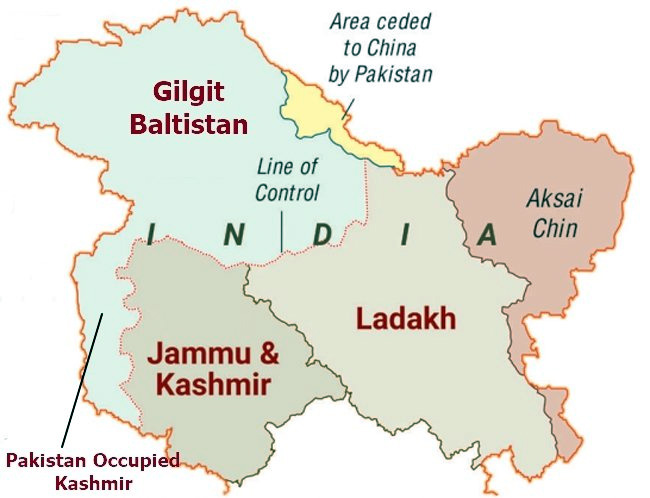International Relations
Ceasefire Along Line of Control
- 27 Feb 2021
- 5 min read
Why in News
India and Pakistan have agreed to observe the 2003 ceasefire agreements along the Line of Control (LoC) and all other sectors.
- The agreement comes in the wake of over 5000 instances of Cross Fire Violations (CFVs) along the Line of Control (LoC) and other areas in Jammu and Kashmir, resulting in 46 fatal casualties in 2020.
- The decision was taken after discussion between the two Director Generals of Military Operations (DGsMO).
Key Points
- 2003 Ceasefire Agreements:
- The original ceasefire agreement was reached in November 2003, four years after the Kargil War (1999).
- The 2003 ceasefire agreement remains a milestone as it brought peace along the LoC until 2006. Between 2003 and 2006, not a single bullet was fired by the jawans of India and Pakistan.
- But since 2006, ceasefire violations have become the norm with increasing frequency.
- Backchannel Diplomacy:
- Several signs indicate that back channel diplomacy led up to the talks and helped produce a joint statement between the two sides, beginning with Pakistan Army chief General's call for resolving the Kashmir issue “peacefully” earlier in the month of February 2021.
- Pakistan supported India’s five proposals for collaboration at the South Asian level on containing Covid-19.
- India allowed the aircraft carrying Pakistan Prime Minister a clear passage to Sri Lanka, where the Pakistani leader declared a USD 50 million defence line of credit for Colombo.
- However, during these apparent signs of back channel negotiations, both sides have maintained their respective positions on the Kashmir issue.
- After the Pakistan government moved to provide provisional provincial status for Gilgit Baltistan in November 2020, India hit out saying Gilgit Baltistan was an “integral part of India”.
- Significance of the Latest Re-commitment to the 2003 Agreement:
- The agreement may contribute to an improvement of the security situation on the ground in Kashmir.
- India has often alleged that many of the ceasefire violations were aimed at providing cover to infiltrating militants. Infiltration attempts may now drop, and go some way in meeting a key Indian demand on cross-border terrorism.
- India - Pakistan Recent Developments:
- The two sides last connected at the highest level during the Christmas day of 2015, when Indian Prime Minister landed in Lahore for an unannounced visit to meet Pakistani Prime Minister.
- Dialogue broke down soon thereafter because of the Pathankot airbase attack of 2nd January, 2016, which was followed by the attack at the garrison in Uri and the Indian response with a surgical strike along the border.
- Bilateral ties continued to nosedive because of the Pulwama terror attack of 14th February, 2019, and the Balakot operation by India.
Line of Control
- The Line of Control (LoC) emerged from the 1948 ceasefire line negotiated by the United Nations (UN) after the Kashmir War.
- It was designated as the LoC in 1972, following the Shimla Agreement between the two countries.
- LoC is demarcated upto the Siachen Glacier (Point NJ9842)- the world's highest battlefield.
- LoC is delineated on a map signed by the Director General of Military Operations (DGMO) of both armies and has the international sanctity of a legal agreement.
Back Channel Diplomacy
- The back channel diplomacy is one of the diplomatic tactics practiced by states to achieve the objectives of foreign policy in solving international disputes outside official bureaucratic structures and formats.
- It takes place away from the eyes and lenses of the media in order to ensure the confidentiality of information and keep them away from official and media trading until they reach the target.
Way Forward
- Confidence-building measures (CBM) should be pursued to alleviate the “trust deficit” but should not be used as a substitute for the resolution of disputes.
- Economic co-operation and trade should be facilitated to develop mutuality of interest. The problems of terrorism and Non-State Actors need to be addressed jointly through institutionalised mechanisms.
- If the new resolve on the ceasefire holds, several low hanging fruits are available to further improve the atmosphere between the two countries, including the restoration of full strength diplomatic missions on both sides.





